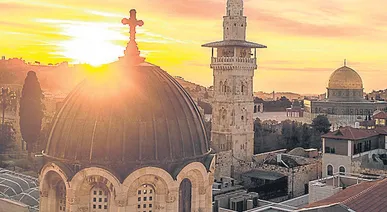
GAFCON: ‘to free our churches’
Charles Raven
Date posted: 1 Jan 2017
GAFCON has confirmed the dates for its third international conference. Between 17-22 June 2018 it will return to Jerusalem, the venue of the first Global Anglican Future Conference in 2008 (from which the movement takes its name).
The GAFCON announcement explains that ‘The city stands as a constant reminder of the birth of the gospel and the movement’s determination to remain true to the teachings of our Lord and his Word’ and so, to appreciate the significance of the 2018 conference, it is worth recalling how it all began.

Caught between bishops and the blue sea
Gavin Mitchell
Date posted: 1 Feb 2017
The Anglican Church of the Province of Southern Africa, now known as the Anglican Church of Southern Africa (ACSA), is one of the provinces of the Anglican Communion that claims to walk the tightrope of the ‘middle path’ in the doctrinal and moral wars of the modern Communion.
ACSA believes that its hero status, from the leading role that it had in the anti-apartheid movement, gives it the new role in championing the indabas (discussions) which some see as essential to the future of Anglicanism. In reality, this means pressure from many bishops and lay leaders for ‘continuous conversations’ until sufficient minds are changed (for a Synod vote) to the new pan-sexual morality. If they can achieve this while convincing people in the pews that nothing is really changing and after all ‘this is what Jesus would want us to do’, all the better.

Global South & GAFCON collaboration
Chris Sugden
Date posted: 1 Nov 2016
Delegates from 16 Anglican Provinces attended the sixth Global South conference at All Saints Cathedral, Cairo from 3-8 October, along with guests from Australia, Canada and England.
They issued a conference communiqué which gives strong counsel to the Church of England and foreshadows development of a structure to sustain orthodox Anglicanism. The Primates Councils of the Global South and GAFCON issued a further joint com-muniqué concerning same-sex unions.

What we need now

David Baker
Date posted: 1 Nov 2016
Unless the Lord builds the house, Psalm
127 tells us, its builders labour in vain.
In September’s en I wrote about how we
Anglican evangelicals need a biblical theology of unity and separation, which we seem to
lack. Theology is always practical of course –
for it is about how we follow Jesus. So this
month I want to write about another theological essential for our current situation,
and that is humility.
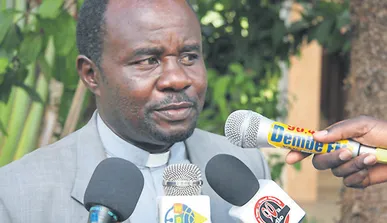
Africa: Council of Anglican Provinces
Chris Sugden
Date posted: 1 Oct 2016
The Council of the Anglican Provinces of
Africa (CAPA) was
founded
in 1979
in
Chilema, Malawi, by the Anglican Primates
of Africa. It reaches out to individuals, communities and groups through more than 40
million dedicated Church members in the
25 African countries with an Anglican presence. That 40 million
is over half
the
Church-going Anglicans in the world.
CAPA is headed by a council to run the
Provinces’ activities. Its secretariat, headed
by General Secretary Canon Grace Kaiso
from Uganda, is based in Nairobi, Kenya.

Dithering or deciding?

Susie Leafe
Date posted: 1 Oct 2016
There have been a lot of headlines about the
Church of England in recent weeks.
Many open letters have been written, a
celibate gay bishop has been paraded, and
even Church meetings in Tunbridge Wells
have got a mention. I don’t think it is just
the lack of real news during the ‘silly season’
that has caused it. No, it is also the fact that
the Shared Conversations about Scripture,
Sexuality and Mission are officially over, and
the time has come to make a decision. And
there is no easy answer.

Synod: culture over Scripture

Susie Leafe
Date posted: 1 Aug 2016
The General Synod of
the Church of
England is drawing to a close as I write.
In fact, it officially came to an end last
Saturday night but since then the majority
of members have been cloistered in Shared
Conversations about Sexuality, Mission and
Scripture. I say the majority, because some
have disappeared home and others, including myself, have been here but have refused
to take part in the process because of the
fundamental flaws in the way that they have
been designed.
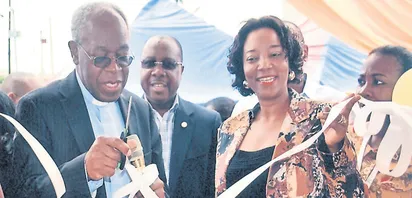
Sudan: new GAFCON province bishop
Chris Sugden
Date posted: 1 Apr 2016
Canon Precious Omuku from Nigeria, the Archbishop of Canterbury’s Adviser on Anglican Communion Affairs and seconded from the Anglican Communion Office, was consecrated assistant bishop in Juba, South Sudan, in a televised ceremony on 3 January at the age of 68.
Bishop Omuku will remain in London as a special envoy of the Archbishop of Canterbury and be an international advocate for the Anglican Province of Sudan and South Sudan.
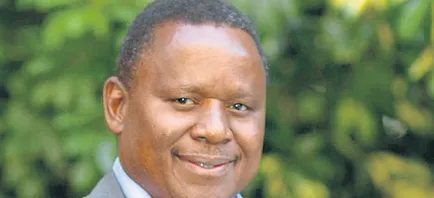
South Africa: a vision for new freedoms
Chris Sugden
Date posted: 1 Jan 2016
South Africa witnessed
two major campaigns in October and November. Tens of
thousands of students protested against a
rise in student fees, ‘Fees must fall’, and the
Anglican Archbishop, Thabo Makoba, and
the Director of the Evangelical Alliance of
South Africa, the Revd Moss Ntlha, led an
anti-corruption march of 6000 people.
These protests against the government by
churches which had
supported
the anti-apartheid struggle marks an important step
in the development of South Africa since
freedom from apartheid came in 1994.
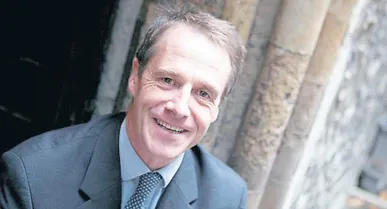
Effective or defective?

David Baker
Date posted: 1 Nov 2015
Almost 450 church leaders met together for
the 2015 ReNew Conference at Chesford
Grange – the third conference that Anglican
Mission in England (AMiE), Church Society,
and Reform had organised together with the
purpose of encouraging church leaders to
pioneer, establish, and secure healthy local
Anglican churches throughout England.
Although I had hoped to attend, I was not
able to, so am grateful to Brian O'Donoghue
of St Helen’s Bishopsgate for most of the following report. In his chairman’s address,
William Taylor of St Helen’s outlined the
history, necessity, and strategy of ReNew and
introduced this year’s theme - ‘Shoulder to
Shoulder; partnering
together
in mission
and ministry’. He stressed the need for interdependence – in prayer, people, and finance.
Reaching for the summit?
Chris Sugden
Date posted: 1 Nov 2015
‘Summitry’ was a regular part of the Cold War. The USSR and the USA faced each across the Iron Curtain with separate alliances, the North Atlantic Treaty Organisation and the Warsaw Pact. Their leaders could not meet as part of one organisation, without recognising the unrecognisable: the West did not recognise the division of Berlin. In 1963 John F. Kennedy proclaimed across the Berlin Wall: ‘Ich bin ein Berliner’.
But US and Russian Presidents did meet in ‘summits’. And Archbishop Justin Welby has called a summit of Anglican Primates in Canterbury for 11–16 January 2016 in these words:
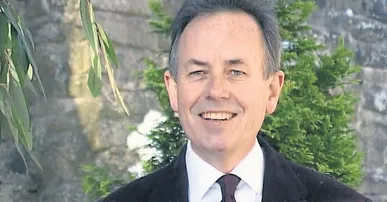
New term, fresh faces
Chris Sugden
Date posted: 1 Oct 2015
In the Western hemisphere, September saw a new year for schools, universities and many professional bodies. This year it saw the elections for the new five year term of the Church of England General Synod and four new appointees in the Anglican Communion and the Church of England take up their office and ministries.
They all come from evangelical and orthodox backgrounds and commitments.

Shoulder to shoulder

Susie Leafe
Date posted: 1 Oct 2015
In 1995 the Irish rugby authorities commissioned a song to unite players and supporters from all four provinces of Ireland as they played as one team in the Rugby World Cup.
No doubt we’ll hear the resulting song on numerous occasions over the coming weeks:
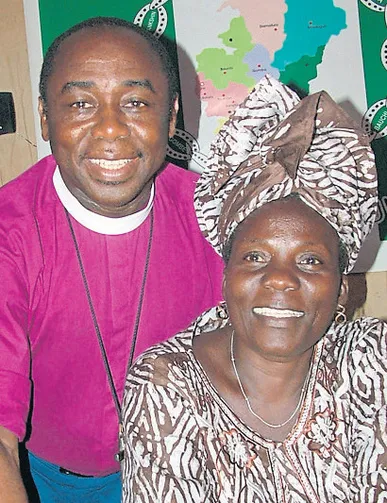
Nigeria: eye-opening visit
Paul & Christine Perkin
Date posted: 1 Sep 2015
Christians
in Northern Nigeria use
the
word
‘Crises’ in the same way that the
word
‘Troubles’ was used
in Northern
Ireland of a terrorist attack or other act of
sectarian violence.
‘Have you heard there was another Crisis
yesterday
in Kanu
(or Kaduna or
Jos)?’
means children were abducted, or a church
was torched, a pastor was killed, or a bomb
exploded in a market.
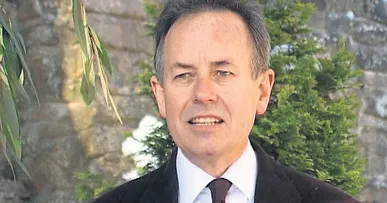
Complementarian bishop

Susie Leafe
Date posted: 1 Jun 2015
On Tuesday 5 May there was a very subdued press conference, in a back room at Lambeth Palace, at which it was announced that Rod Thomas, vicar of Elburton Parish Church in Plymouth, chairman of Reform and a member of General Synod, had been appointed to be the new Bishop of Maidstone. No frills. No fanfares. In fact, you may have missed it altogether.
The appointment of a conservative evangelical bishop in the Church of England was long overdue. The last complementarian evangelical, Wallace Benn, was appointed 17 years ago and it is nearly three years since he retired. The gap was not unexpected. A report by the Church of England in 2007, called Talent and Calling, highlighted the lack of conservative evangelicals in senior leadership positions. The opportunities to deal with it existed – there have been 75 opportunities for a diocesan bishop to appoint a complementarian to assist them since that report was accepted by General Synod and every single time the opportunity has been missed, or rejected.

Christian Aid?
Chris Sugden
Date posted: 1 Apr 2015
Christian Aid Week in May is an established national institution. Thousands of volunteers, including me, drop red envelopes through people’s letter-boxes and collect them at the end of the week. Thousands who never attend church respond generously to appeals to help the most deprived in the world.
Christian Aid began in response to the refugee crisis at the end of the Second World War. It puts into practice the teaching of Jesus to love our neighbours and to obey him in helping the poor, the hungry and the naked. Jesus did not specify that these poor people had to be Christian.
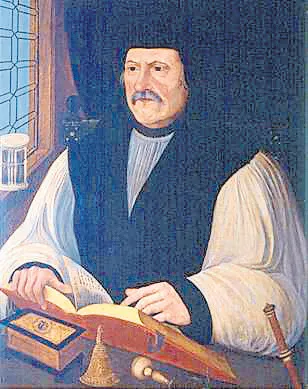
Two new AMiE churches

Susie Leafe
Date posted: 1 Feb 2015
‘Thanks be to God’, as us Anglicans like to say, two brand new Conservative Evangelical Anglican churches have opened in the last few months: one in Salisbury and another in Guildford.
Both have been started under the auspices of the Anglican Mission in England (AMiE) where they join a good number of other churches already identifying with AMiE’s remit and, wonderfully, there are many more churches in the pipeline.
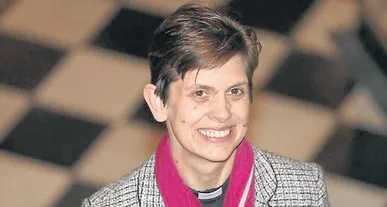
Clear as mud

David Baker
Date posted: 1 Mar 2015
Recently someone discovered and posted on Facebook a list entitled A Short Guide to the Duties of Church Membership issued at the requests of the Archbishops of Canterbury and York. Here it is:
1. To follow the example of Christ in home and daily life and to bear witness to him.
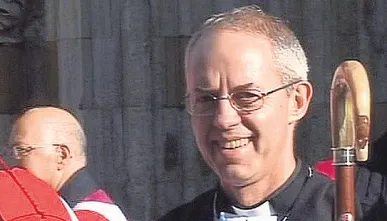
Locating Lambeth?
Chris Sugden
Date posted: 1 Dec 2014
Transition of leadership is always a testing time for organisations.
This is certainly true for the Anglican Church in North America (ACNA), which came into being in 2009. Following the consecration to the office of bishop of a man who was in a samesex relationship, those who could not accept this within a Christian church formed a new church, faithful to Anglican teaching. It was recognised by the Global Fellowship of Confessing Anglicans (GAFCON), which first met in 2008 in Jerusalem.
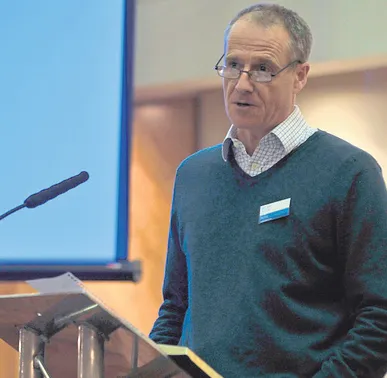
ReNew
Mark Burkill
Date posted: 1 Nov 2014
For evangelical Anglicans who grow weary
of the vital battles over women’s ministry
and sexuality in synods and elsewhere, the
2014 ReNew conference (22–23 September)
was a great encouragement and inspiration.
It is not that the necessary task of contending for biblical truth was ignored, but
that this was seen within a bigger context.
That bigger context is the work of pioneering, establishing and securing healthy local
Anglican churches.

Encourage one another

Susie Leafe
Date posted: 1 Oct 2014
Our dear brother John Richardson went home to glory this year. As a writer, he is a loss to this column, but his ministry has myriad legacies. Not the least amongst them is the annual Junior Anglican Evangelical Conference (JAEC) which took place in September.
The ‘Junior’ refers to the delegates – they are all people with less than seven years in ordained ministry, with some who are only just embarking on that path. It was wonderful to be there to see men and women from all over the country gathered to explore together their future ministry, in pursuit of John’s oft repeated goal – nothing less than the evangelisation of England.
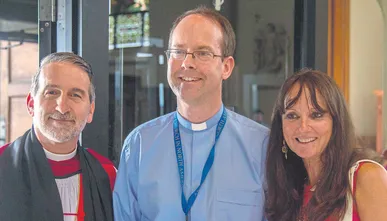
Lessons for the future from the US?
Andrew Symes
Date posted: 1 Aug 2014
At the end of June I was privileged to attend the Assembly of the Anglican Church in North America (ACNA), a vibrant and upbeat gathering of nearly 1000 people at St Vincent University, Pennsylvania.
It was a celebration to mark five years since its formation, to worship together and hear from the Lord, and to recommit itself as a movement under the leadership of Archbishop-Elect Foley Beach to mission based on the foundation of God’s Word.
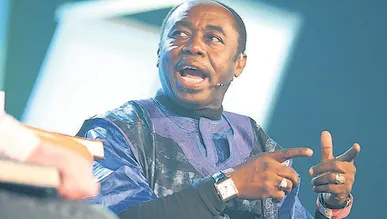
Nigeria: David Cameron gets it right
Chris Sugden
Date posted: 1 Jul 2014
On Sunday June 29, Canterbury Cathedral hosted a service of Celebration and Thanksgiving, marking the 150th anniversary of the consecration of Samuel Ajayi Crowther in the Cathedral as Bishop of the Niger.
Bishop Crowther had been a slave and was made the first Anglican black bishop, of the Niger. He was an evangelist and church planter and promoted ‘wholistic mission’ especially combatting the slave trade. His slogan was ‘The Bible and the Plough’. The tragedy was that the Anglican church worldwide had no further non-white bishops until Bishop Azariah in India in 1912. Crowther, who was a distinguished linguist with a DD from Oxford, was too much of a threat.

Moment or movement?

Susie Leafe
Date posted: 1 Feb 2014
In my youth we enjoyed the old game of seeing how many people we could squeeze into a Mini.
Little did I know how useful those skills would be when trying to organise ReNew, a new conference for conservative evangelical Anglican leaders that took place last November.